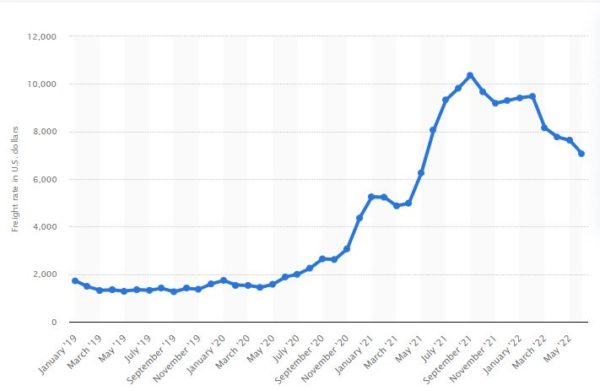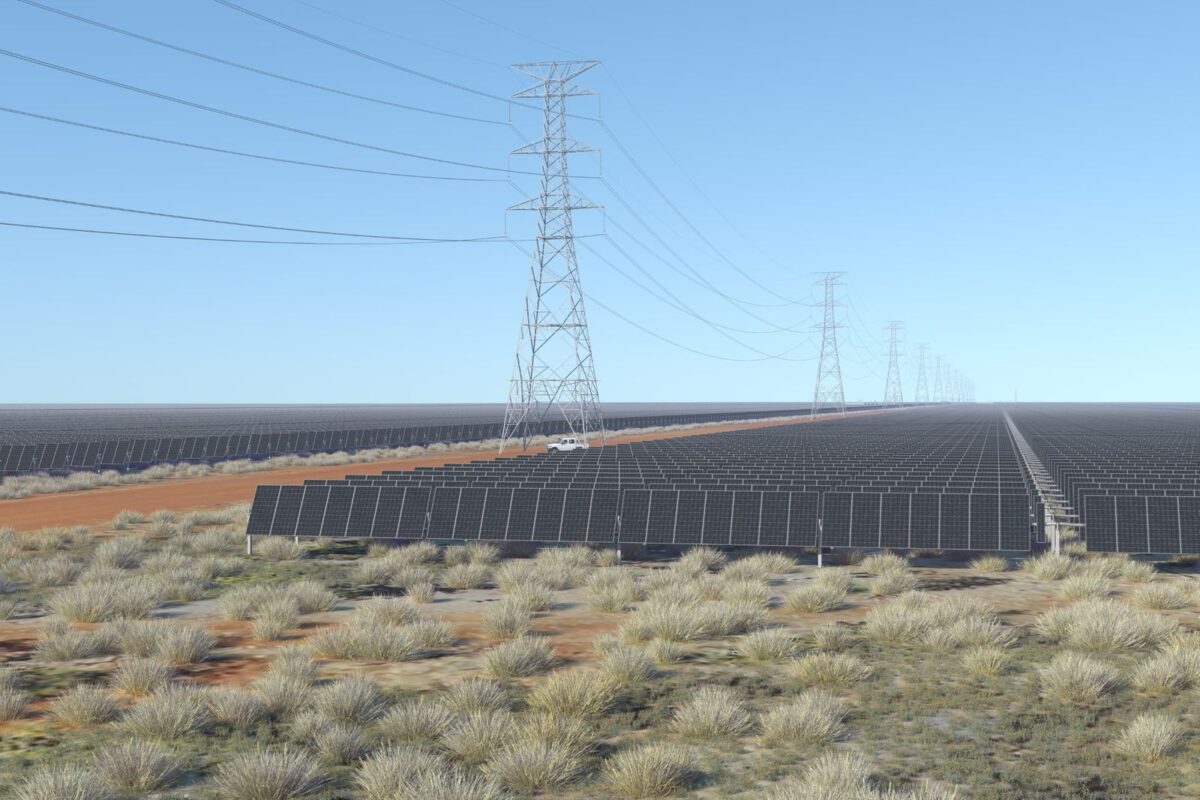New data supplied by Dutch multinational financial services company Rabobank shows that ocean container shipping costs have fallen from a record-breaking high in September 2021 but are still up to five times higher than in 2019 and the banking group has warned there is no return to pre-pandemic lows on the horizon.
Driven by Covid-19 related disruptions, international container freight rates have increased dramatically since January 2019, reaching a record price of nearly $US10,400 in September 2021. In June 2022, the global freight rate index stood at almost $US7,100.
The higher freight costs and supply chain disruptions are impacting all industries but solar PV is one of the most effected due to the high concentration of solar panel manufacturing in China. The elevated freight costs and shipping constraints are also impacting other system components like trackers, inverters and batteries.
In its Global Ocean Freight Outlook report, Rabobank says container freight prices are set to continue to gradually decline over the next 12 months from the “irrational” highs reached late last year but are not expected to return to pre-pandemic lows.
RaboResearch global supply chain analyst Viet Nguyen said shipping container prices were “never” expected to return to the low pre-pandemic rates of approximately $US3,000 a container, but predicted they would decline from the current $US7,000-$US78,000 per container mark in the year ahead.

Image: Statista
Nguyen said several global “macro drivers” are influencing shipping dynamics and behind the lingering high costs.
While heightened inflation and all-time low global consumer confidence levels are exerting downward pressure on ocean rates, Nguyen said rates are being supported at higher levels by imbalanced global trade flows which hinder a cost-effective repositioning of empty containers.
“Added to this, geographical uncertainties are adding risks and there are also growing operational costs for the sector from higher energy costs and sustainability regulations,” he said.
While shipping rates are forecast to soften, Rabobank expects schedule reliability for containers to also recover, albeit slowly. Port congestion, a major contributor to the continuing supply disruptions, is forecast to remain at key ports until the first half of next year.
For Australia, where the solar sector is heavily reliant on ocean container shipping for modules, the “overall picture is a rather positive one”, according to RaboResearch general manager for Australia and New Zealand Stefan Vogel.
“While we are not expecting ocean freight to return to normal for the sector here before 2024, we think it is going to get better for us in Australia, and many other parts of the world, but it is not going to happen tomorrow,” he said.
“It will be one or two years of ocean container freight rates tending to move slowly lower, while simultaneously reliability will improve, step by step, up to something closer to normal.”
Vogel said the “bad news” is that it is unlikely ocean container freight rates will return to the levels experienced before the pandemic, where “they had been extremely cheap”. However further extreme price rises to, or above, the Q4 2021 highs are also not expected.
“The overall picture is a rather positive one, where we do not expect to see those rates explode suddenly again or that there will be another massive disruption in the chain,” he said.
This content is protected by copyright and may not be reused. If you want to cooperate with us and would like to reuse some of our content, please contact: editors@pv-magazine.com.









1 comment
By submitting this form you agree to pv magazine using your data for the purposes of publishing your comment.
Your personal data will only be disclosed or otherwise transmitted to third parties for the purposes of spam filtering or if this is necessary for technical maintenance of the website. Any other transfer to third parties will not take place unless this is justified on the basis of applicable data protection regulations or if pv magazine is legally obliged to do so.
You may revoke this consent at any time with effect for the future, in which case your personal data will be deleted immediately. Otherwise, your data will be deleted if pv magazine has processed your request or the purpose of data storage is fulfilled.
Further information on data privacy can be found in our Data Protection Policy.